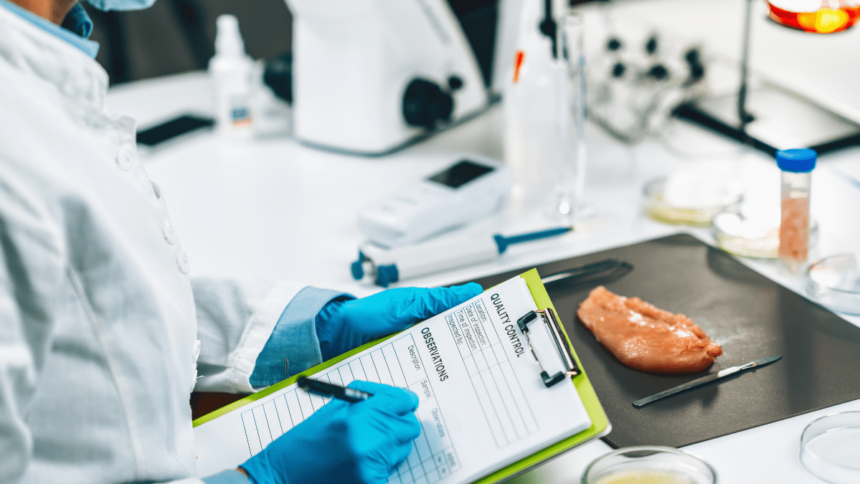This means that many food establishments go unchecked, leaving room for unsafe practices to go unnoticed. In some provinces, there are even fewer inspectors — in the Eastern Cape, for example, there is just one EHP for every 121 000 people.
“Our health system is not doing well in terms of the number of environmental health practitioners,” Rathebe says. “There are not many of them and the ones that are there are overwhelmed because they have to do so much.”
He adds that there are also issues with the training of these practitioners. The health department’s 2019-2024 strategic plan says that, by this year, the department aimed to have 3 000 EHPs. But just 1 712 have been trained so far.
“We don’t have enough environmental health practitioners to support the food safety system,” Rathebe says. “We need a lot more of them, we need to train them well and we need to give them the equipment and resources they need to do their jobs.”
Safe food for all
But would a single food safety agency solve the myriad issues in the nation’s food system?
“A single food agency will not solve the problem of food safety in South Africa,” Rathebe says. “It’s not just about having an agency but also ensuring that it has the capacity, resources and capabilities to do its job effectively.”
He adds that a single agency would need to work closely with other government departments, such as agriculture, trade and industry, and education, to ensure that safe food is produced, distributed and consumed. It would also need to collaborate with local authorities and community groups to ensure that food safety practices are followed at all levels of the food chain.
“A single food agency could help improve coordination and oversight of food safety in South Africa,” Rathebe says. “But it would need to be part of a broader strategy that includes training more environmental health practitioners, increasing funding for food safety programmes, and raising awareness among consumers about safe food practices.”
As the government works to address the recent spate of foodborne illnesses, the call for a single food safety agency remains a key part of the conversation. Whether it becomes a reality remains to be seen, but what is clear is that ensuring safe food for all South Africans will require a comprehensive and coordinated approach from all stakeholders involved in the nation’s food system.
about the need for a single agency to monitor food safety in South Africa. Late last month, President Cyril Ramaphosa declared a state of disaster after six children from Soweto died from eating chips contaminated with a dangerous pesticide. This tragic incident, along with the deaths of 16 other children and the sickness of nearly 900 people due to foodborne illnesses over just two months, has highlighted the urgent need for better oversight of food safety in the country.
The current food safety system in South Africa involves multiple government departments, including health, agriculture, trade and industry, as well as other agencies like the National Consumer Commission and the National Institute for Communicable Diseases. While these entities play a role in ensuring food safety, there is a lack of coordination and oversight that allows unsafe food to enter the system.
In 2018, plans were announced to establish a single food safety agency to address these shortcomings. However, more than six years later, this agency has yet to be set up due to legislative challenges. The lack of a centralized authority for food safety has hindered efforts to prevent foodborne illnesses and protect consumers from unsafe food practices.
One of the main challenges in ensuring food safety in South Africa is the shortage of environmental health practitioners (EHPs), who are responsible for enforcing food safety regulations. With only 1,712 EHPs for a population of around 63 million, there is a significant shortage of inspectors to monitor food establishments and ensure compliance with safety standards.
While a single food safety agency could help improve coordination and oversight of food safety in South Africa, it is not a panacea for all the challenges in the nation’s food system. A comprehensive approach that includes training more EHPs, increasing funding for food safety programs, and raising awareness among consumers about safe food practices is needed to ensure safe food for all South Africans.
As the government grapples with the recent foodborne illness outbreak, the establishment of a single food safety agency remains a critical part of the solution. By working together with other government departments, local authorities, and community groups, South Africa can improve its food safety standards and protect its citizens from the risks of contaminated food. The health department’s target of having one Environmental Health Practitioner (EHP) for every 10 000 people is far from being met, according to a recent report. EHPs play a crucial role in ensuring public health and safety by monitoring water supplies, waste management, and educating communities on hygiene practices such as water purification and safe fuel use.
One of the key responsibilities of EHPs is enforcing safety regulations to prevent foodborne illnesses, especially in the informal sector where regulation is challenging. A study conducted among EHPs in Ekurhuleni revealed that less than half of the respondents felt adequately trained to handle foodborne outbreaks.
Recent inspections of spaza shops across the country uncovered alarming practices such as storing food alongside pesticides and selling fake or expired products. Over 1,000 outlets have been shut down for operating without a license and failing to comply with food safety regulations.
To address these issues, the government has launched a registration drive for small businesses and spaza shops to create a database for better regulation and monitoring. However, some experts argue that the problem lies not only in informal shops but also in weak regulations on toxic chemicals and poorly managed municipalities.
The improper disposal of waste in townships has led to rodent infestations, prompting residents to use cheap and hazardous pesticides to combat the problem. These “street pesticides” are often agricultural chemicals sold in unregulated packaging, posing a significant risk to public health, especially children.
In response to a recent tragedy where 22 children died from pesticide poisoning, the agriculture department is investigating the manufacturers of the toxic substance. While efforts are being made to address the issue, the pain and loss experienced by the affected families cannot be undone.
The need for better enforcement of regulations, improved waste management practices, and stricter controls on hazardous chemicals is vital to prevent similar incidents in the future. Collaborative efforts between government agencies, health practitioners, and the community are essential to safeguard public health and safety.
This article was produced by the Bhekisisa Centre for Health Journalism. Stay informed by signing up for their newsletter. Scratch that, let’s start fresh:
The world of technology is constantly evolving, with new innovations and advancements being made every day. One of the most exciting areas of development is artificial intelligence (AI), which is revolutionizing industries ranging from healthcare to finance to entertainment.
AI is the simulation of human intelligence processes by machines, especially computer systems. This technology has the potential to make our lives easier, more efficient, and more enjoyable in countless ways.
One of the key benefits of AI is its ability to automate tasks that would typically require human intervention. For example, AI can be used to analyze large sets of data in a fraction of the time it would take a human to do the same task. This not only saves time but also allows for more accurate and insightful results.
In the healthcare industry, AI is being used to help diagnose diseases, develop personalized treatment plans, and even assist in surgery. By analyzing medical images, AI can detect abnormalities and provide doctors with valuable information to make more informed decisions.
In the finance sector, AI is being used to detect fraudulent activity, predict market trends, and manage investment portfolios. This technology can process vast amounts of financial data in real-time, allowing for faster and more accurate decision-making.
In the entertainment industry, AI is being used to personalize content recommendations, create virtual reality experiences, and even write music and screenplays. This technology can analyze a user’s preferences and behavior to tailor their entertainment experience to their tastes.
But with all of these advancements comes the question of ethics and privacy. As AI becomes more integrated into our daily lives, there are concerns about data security, bias in algorithms, and the potential for job displacement due to automation.
Despite these challenges, the potential benefits of AI are vast, and the technology is only expected to continue to grow and improve in the coming years. As we navigate this new era of artificial intelligence, it will be crucial to prioritize ethical considerations and ensure that this powerful technology is used for the greater good.








